Donald Trump angered the establishment – through Manafort and Cohen, Washington is putting him back in his place
Contrast the free pass, pretty much, given to successive Kennedys and Bushes, despite their personal flaws and catastrophic political misjudgements to the trouble suffered by outsiders like Trump and even the Clintons

Once again, Washington smells blood. Two years since his confirmation as the Republican candidate, Donald Trump’s enemies sense a chance to evict their hated president from the White House. The I-word – impeachment – is hovering on many lips.
There is a long way to go, and Trump is not surrendering yet. Interviewed on Fox & Friends – friends being the operative word – the president admitted that, yes, he had paid hush money to two women who had alleged having affairs with him, but, no, the payments had not violated election laws. In so saying, he both reversed past denials about a payment to the porn star, Stormy Daniels, and flatly rejected the claim of his erstwhile lawyer, who claimed the payments had been illegal.
But Trump’s television appearance – to be aired in full on Thursday night – was an unusually late nod (for him) to two developments that pose the biggest threat to his presidency so far. One of these was the decision of his lawyer, Michael Cohen, to enter a plea bargain with prosecutors, which could reduce a very long prison sentence to just a few years. The other was the conviction by a jury of Paul Manafort, his one-time campaign chairman, on eight (of 18) charges – so how much trouble is Trump really in?
Both cases stem from the year-old investigation into the alleged involvement of Russia in the 2016 election and any matters that found to be related. But of all the indictments and convictions achieved by special counsel Robert Mueller’s work so far, there is one dog that has signally failed to bark: the Russia connection.
Instead, what has happened is exactly what happened with the investigation of Bill and Hillary Clinton. An investigation set up to look into one set of allegations – the Whitewater land deal in the Clintons’ case – has morphed into something quite different. With Clinton it was his affair with Monica Lewinsky; with Trump it is (so far) his payments to women and compliance with election law. More accurately, it might be said, the investigations exposed both presidents’ dubious relationships with the truth.
The absence of the Russia element does not mean, however, that Trump can simply brush off the convictions of those once in his entourage, though one would appear to be infinitely more dangerous than the other.
Paul Manafort need not be a great concern. A veteran lobbyist and hired hand, Manafort survived only five months as chairman of Trump’s campaign, and his convictions do not relate to that time. Nor was there mention of any “conspiracy” with a foreign power. He reflects rather the dark side of the US lobbying industry, where the nexus between politics, money and the law has always seemed to me tantamount to legalised corruption. How many professional lobbyists would emerge unscathed after the sort of scrutiny applied by the Mueller investigation?
In fact, Manafort’s main value to Trump’s detractors has been the time he spent in the (exorbitant) pay of the then Ukrainian president, Viktor Yanukovych – which they have scoured for evidence of a Russia connection. Unless some new evidence is turned up, such allegations seem to me based on either deliberate distortion or sheer ignorance.
Contrary to what is commonly stated, Yanukovych was not close to President Vladimir Putin – who has shown little more than contempt for him. At the time of Manafort’s involvement, what is more, Yanukovych was pursuing a pro-EU, rather than a pro-Russia, policy. So far as can be divined, Manafort’s payments came from Ukrainian, not Russian, oligarchs – the two are different.
Michael Cohen’s plea bargain is – potentially – a problem for Trump of a quite different order. As a long-time lawyer – and confidante? – to Trump, Cohen may well know where bodies are buried. He has suggested that he has a lot more beans – than two violations of campaign finance laws – to spill. Trump may be right when he says that Cohen is bluffing to maximise his plea bargain. He may also be right when he draws a distinction between payments made for the sake of his personal reputation and payments made to influence an election. Then again, he could be wrong.
The finer points of the law will not, however, be tested in court – at least not for a while, and not so long as Donald Trump occupies the White House. The impeachment process is the first port of call against an incumbent president, and proceedings are initiated by the House of Representatives. If the House votes to impeach (as it did with Bill Clinton), the president is effectively tried by the Senate.
This makes for a process that is a political-judicial hybrid and will depend for its outcome on the political loyalty – or otherwise – of congress. Clinton enjoyed just enough support to be found “not guilty” by the Senate. How Trump might fare could depend not only on the results of the mid-term congressional elections in November – which thus become a lot more than just a gauge of the president’s popularity – but also on how far he can command the support of Republicans in the new congress, some of whom have been at least as hostile towards him as leading Democrats.
This combination of voter support and anti-Trump sentiment across Washington make both the prospect of impeachment and its verdict particularly hard to second-guess. I have long been critical of the mainstream UK media’s coverage of Trump, not least during the campaign, but one big recent improvement has been a greater curiosity about views in the so-called “heartland”.
What emerges is that grassroots support for Trump is holding up – in part because his supporters say he never pretended to be a saint (so no real problem with paying off women); in part because they regard Washington as the “cesspit” Trump said it was during the campaign; in part because they suspect any Washington consensus (including on Russia); and in part because – so far at least – the economic indicators have edged up. We will have to wait for the midterm results to find out how far Trumpland has really kept the faith and how far – or not – Donald Trump and his presidency are damaged.
Two early conclusions might be ventured. Whether or not Trump’s difficulties lead to impeachment, and even eventual removal from office, the special investigation that began over Russia has taken on a life of its own and is proving – as it did with Clinton – a huge distraction from the president’s intended programme.
Second, the Washington establishment has the power to inflict huge harm on those it deems unwelcome outsiders. Richard Nixon was seen as an outsider; so, too, was Bill (and at that time also Hillary) Clinton. Contrast the free pass, pretty much, given to successive Kennedys and Bushes, despite their personal flaws and catastrophic political misjudgements.
Trump might be seen as the ultimate outsider. Not only was his victory received by many with astonished dismay – including, so it has been told, by the candidate and his family – but many senior Republicans treated him with open disdain. Rather than co-opting a team from party insiders or inheriting staff from a predecessor, he plucked those he trusted (family) or judged to be the “best” (such as Manafort). Having relied on much of his own money for his campaign, he also had less need to dispense patronage as president.
This is not how Washington likes to do things. And while some might argue that the judgement of the establishment has been vindicated – in terms of the presidents it favoured, and those it did not – it might also asked how far a president’s success in office is determined not by his (not yet her) own character or competence, nor yet by the level of support in the country, but by those ensconced in power in the capital.
Donald Trump set out to pick a fight; he cannot be surprised that Washington is fighting back.


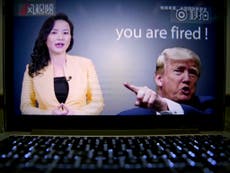
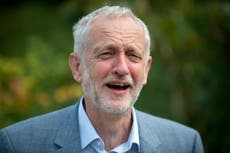
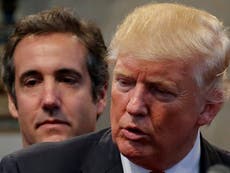
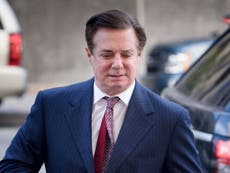
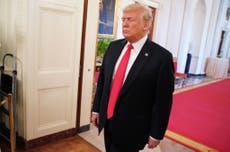
Join our commenting forum
Join thought-provoking conversations, follow other Independent readers and see their replies